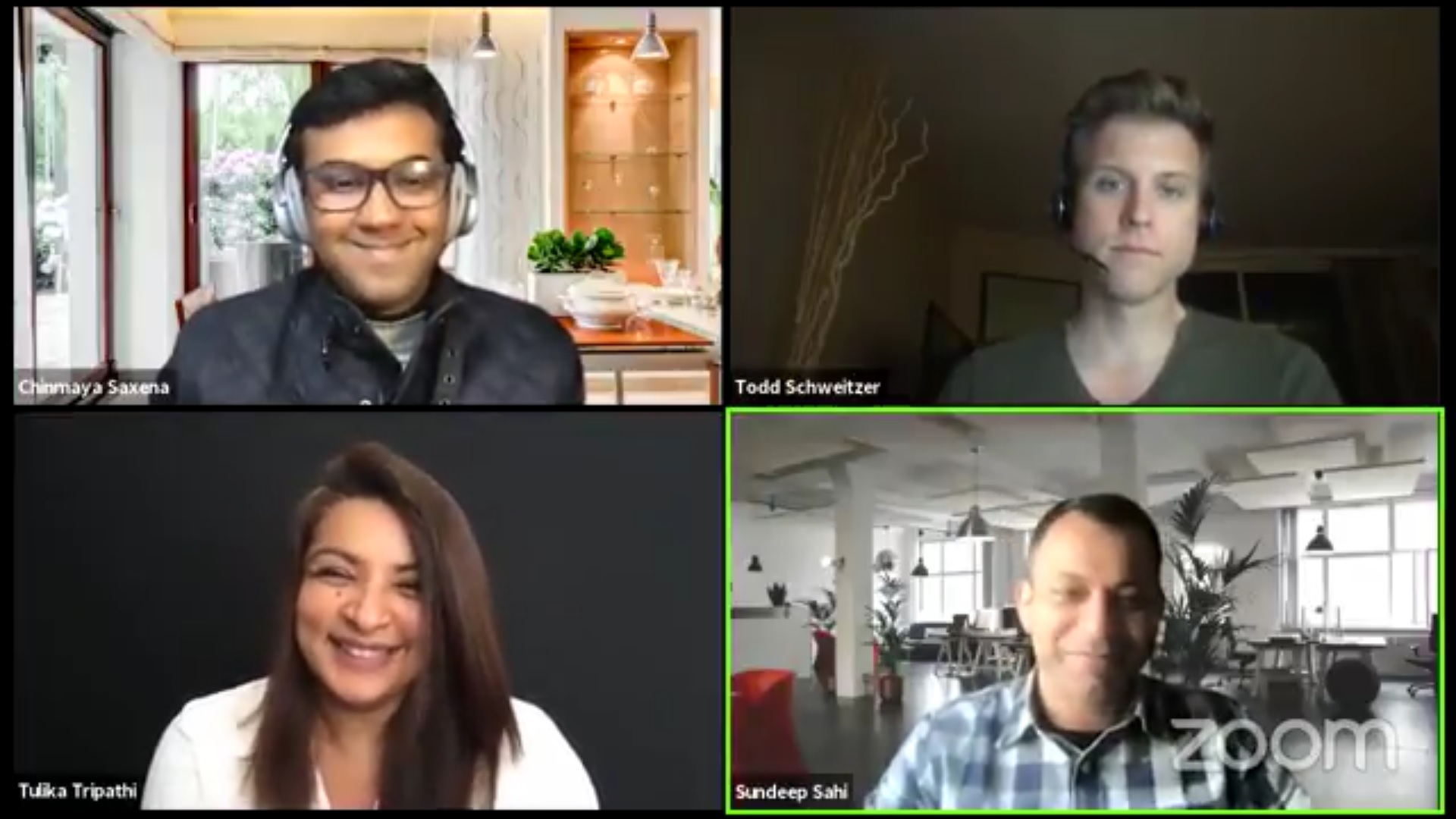Following the major shift in the workplace environment, we kicked off 2021 with this year’s first exclusive webinar for the BEENEXT Founder Circle on the new-normal – remote working and ‘All About Effective RemoteTeams’. Joining us, we had Tulika Tripathi CEO & Founder, Snaphunt, Todd Schweitzer, CEO & Founder, Brankas and Sundeep Sahi, Co-founder, Skuad share insights and talk about their experience in virtual team building.
The shift to remote working
The global pandemic forced almost all companies to work remotely. While it was a rude jolt, several organisations found managing remote teams slightly easier majorly because they have been a distributed team from day one. While this did give them an added advantage, they still considered it a work in progress to overcome challenges.
Talking about the industry in general, developers likely found this shift comparatively easier, due to the nature of their work. They often work on individual projects and remote developers were already a common trend. On the other hand, the sales and business development teams found this shift the hardest to navigate. In regions such as Asia, sales deals often need multiple in-person meetings to build trust. Especially in more traditional sectors such as Fintech.
Opening up talent pools around the world
In the recruitment space, every piece of the hiring process underwent a change. However, the biggest change has been the employer mindset towards tapping new regions for hiring new talent. Initially, organizations preferred to stick to hiring remote workers from their own region. The pandemic saw this mindset slowly shift, opening borders and employing resources across the world. Organisations have realised that they will need to be at least partially remote going forward. This has opened up tremendous employment opportunities especially in previously untapped regions.
What makes a good remote worker?
As distributed teams become more common, a commonly asked question is “What makes a good remote worker?”. Employees want to work towards upskilling themselves and ensure they match the new requirements. While organizations want to know what they should be looking at as hiring processes are changing.
Any previous remote working experience has become a huge plus in the current market. However, ensuring that a person is the right “Culture Fit” for the company still continues to be of paramount importance. Furthermore, it is important to realise that company culture is constantly changing especially in the current scenario. Hence, adaptability is a key skill.
Communication is key when working remote. Staying connected and making the initiative to keep conversations flowing is critical. The ability to make independent decisions is yet another skill that has become highly valued in distributed teams.
From the organisation’s point of view, there is a drastic fall in face-to-face interviews with data-driven hiring starting to gain popularity.
Keeping the remote teams motivated
The shift to remote working has brought up several challenges for organisations across. One of the biggest has been keeping employees motivated. The pandemic had a significant impact on mental health as well. The unexpected shift to working from home has made it quite hard on most employees.
Founders who had been working remotely for many years before have set up processes in place, including periodic virtual hangouts to keep employees’ morale up. These are informal sessions over a coffee or a drink to celebrate wins or just casual chats with fellow employees. If not, making a process document can help abundantly and act as a simple but effective tool for a smooth transition. This document can cover even seemingly minor but often asked questions, such as, should employees keep cameras on for all meetings?
Another very important aspect of team building is showing employees you trust and appreciate their work. And while doing so, the traditional top-down approach may not effectively work in the era of distributed teams. Whereas, open communication is important to set expectations for both employees and the organisation.
Future – Are distributed teams the new normal?
Even as the world edges back to a new normal, remote working is here to stay. This brings forth a ton of challenges but also a range of opportunities.
Geographic barriers are breaking, allowing organizations to access fresh talent. Another interesting opportunity is that companies can also learn about and venture into new markets. The biggest hurdle will be getting over traditional mindsets about hiring and managing remote employees. The way forward will be a collaboration with clear communication channels.
We at BEENEXT have always believed in the value of diversity. By embracing this global change, we hope to leverage this monumental opportunity.


